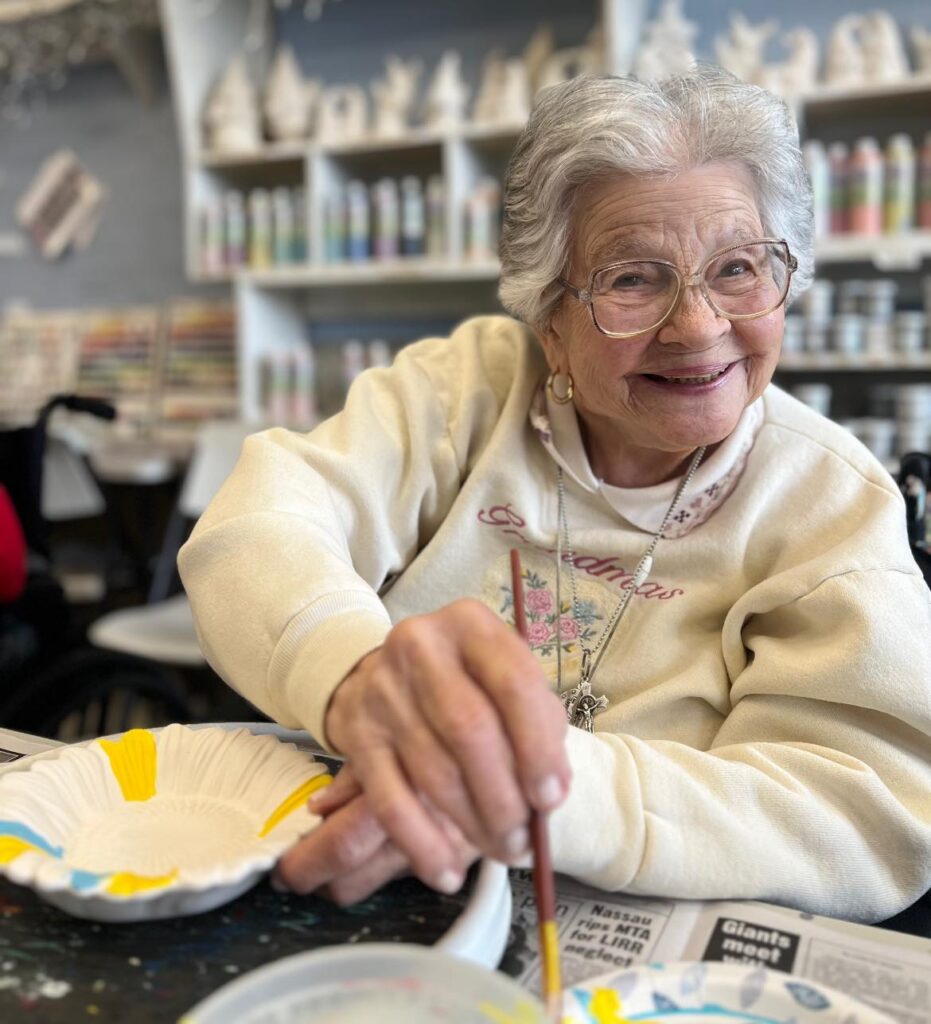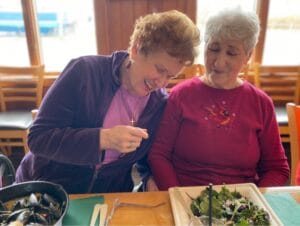The short answer is: in stage six or seven of the seven stages of dementia. The longer answer to the question, “At what stage do dementia patients forget family members?” is that it depends on whether short-term or long-term memory is affected.
While it can be heartbreaking to see a loved one begin to forget you and all the beautiful memories you’ve created together, they still remember you in different contexts.
And we’ll discuss a little bit about why that is and what you can do to both support yourself with the changes and also support your loved one as they go through their journey with dementia.
Village Green here: for more than 20 years, we’ve provided warm, compassionate caregiving solutions for older adults with memory loss, so we’ve seen a thing or two.
If you’re looking for answers as to what stage dementia patients forget family members — and why that is — you’ve come to the right place.
In this article, we’ll discuss:
- The answer to the question, “At what stage do dementia patients forget family members?”
- Why dementia patients forget family members in the first place
- Whether forgetfulness of long-term memory is always the case for those with dementia
- A look at two stages, stage six and seven of dementia, the two stages most associated with forgetfulness in long-term memory
- Strategies to help families help their loved ones with dementia.
For reference: A quick look at the 7 stages of dementia
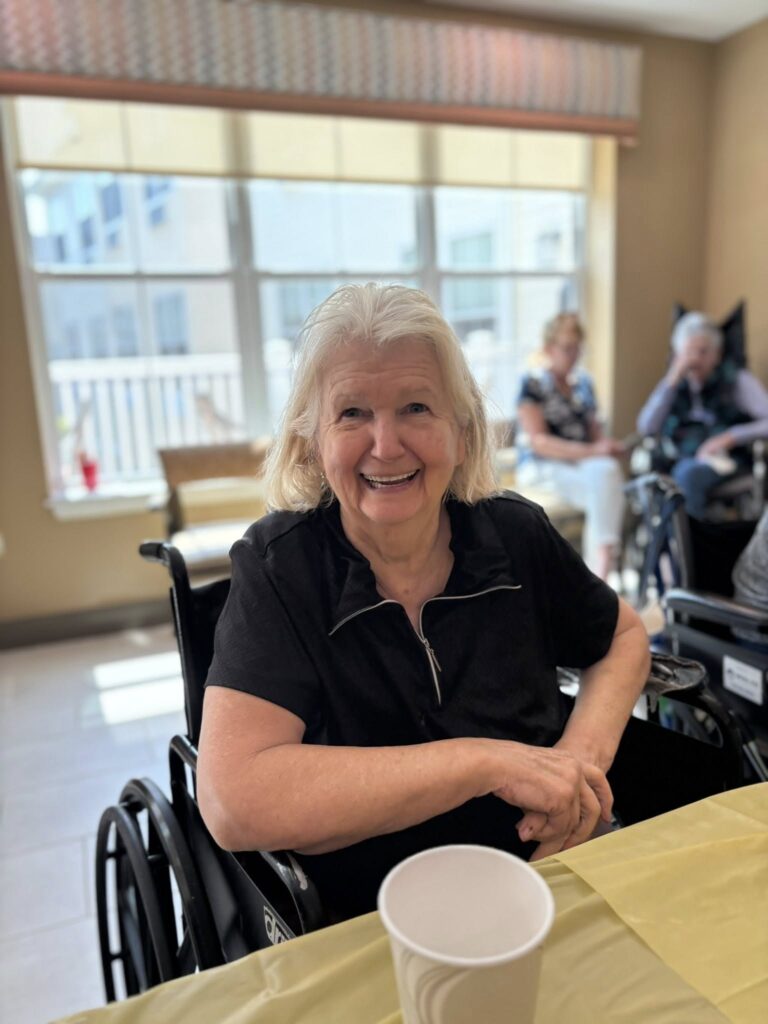
| Stage | Associated behaviors |
| Stage 1 dementia | No impairment in memory or cognitive functioning |
| Stage 2 dementia | Very little cognitive decline that’s noticeable to the person living with dementia |
| Stage 3 dementia | Initial forgetfulness of the names of people, places, or recent events |
| Stage 4 dementia | More severe memory loss and confusion |
| Stage 5 dementia | Needing help with activities of daily living; memory loss continues |
| Stage 6 dementia | Difficulty recognizing people and places; short and long-term memory affected (this is where many people with dementia forget the names of loved ones) |
| Stage 7 dementia | Complete dependence on a caregiver for all activities (Forgetfulness happens to a greater extent here) |
At what stage do dementia patients forget family members?
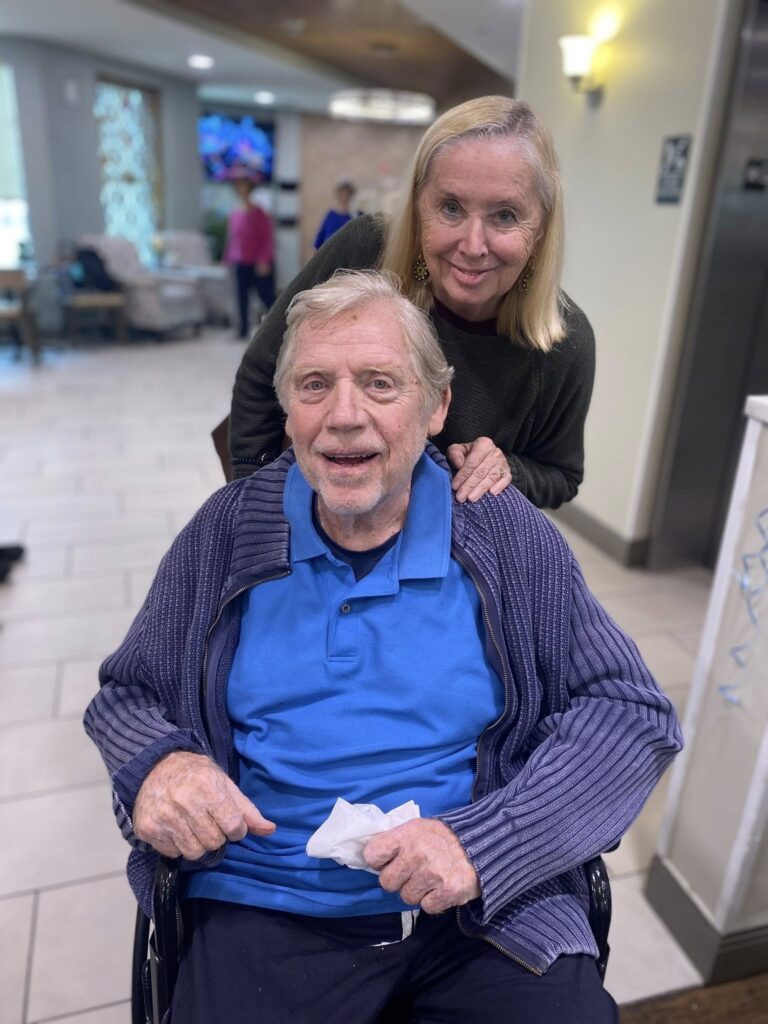
Since dementia tends to affect memory, thinking, and behavior in those who are 60 years and older, the decline is often seen in memory, language, and personality.
Many people with dementia tend to forget their family members, eating, drinking, and other daily activities in the later stages of dementia (see the list above for reference).
In advanced stages of dementia, many individuals with dementia and memory loss tend to forget their name, their family identity, and where they are. Both the family and the patient can be impacted as dementia progresses and memory loss becomes more pronounced.
As a result, the patient may feel confused, frustrated, anxious, or unable to recognize those who are very close to them. Family members of people with dementia may even feel a sense of guilt or sadness at seeing how dementia affects their loved one.
Why do dementia patients forget family members?
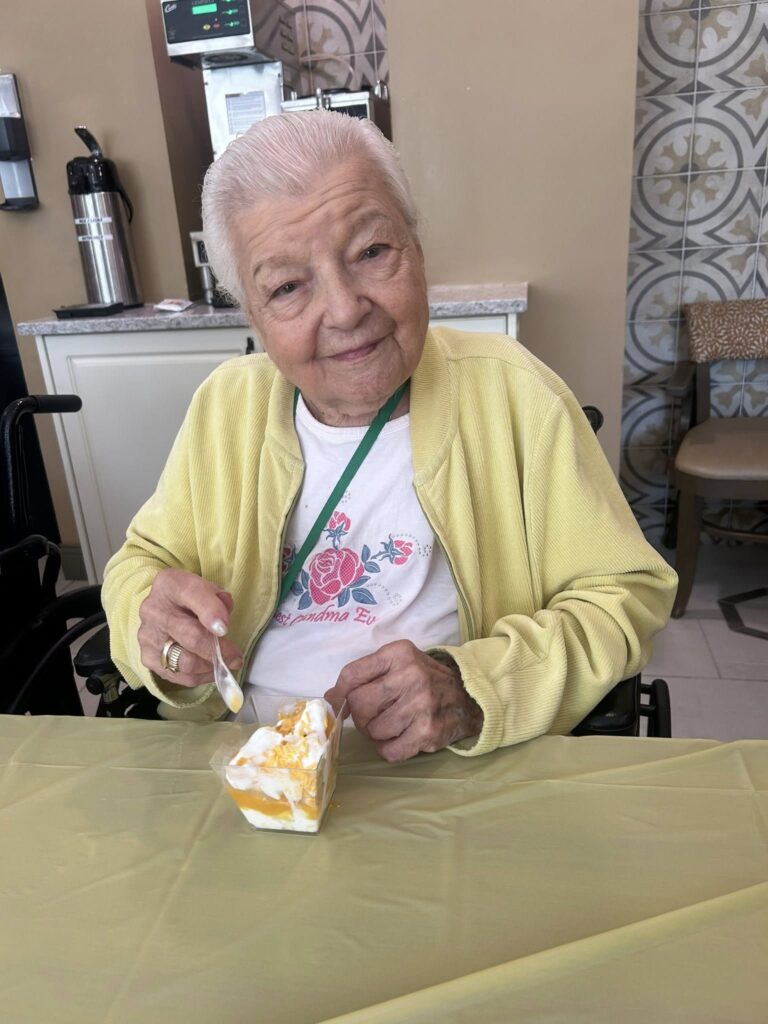
Many people often ask, “Why?”
Why does dementia have a precipitous effect on memory and cognition?
Forgetting family members is, alas, all too common a sign and symptom for those living with dementia. According to Statista.com (2022), about 55 million people lived with dementia as of 2019, with this number expected to rise to 78 million by 2030.
Though we don’t know why it occurs, general short-term and long-term memory loss occurs because of an abnormal build-up of two proteins called amyloid and tau. As a result, these proteins can affect the build-up and structure within brain cells, all which can affect the brain and is even associated with the loss of brain cells.
What’s more, a decrease in the transmission of neurotransmitters, key signals that help send messages between brain cells, occurs. The result is that people with dementia tend to forget events, people, and more from both short- and long-term memory.
In other words, people with dementia forget family members because of a build-up of substances in the brain that can affect the formation and preservation of brain cells, brain cells which are essential in helping us remember and retrieve information.
Is it always the case that people with dementia forget family members?
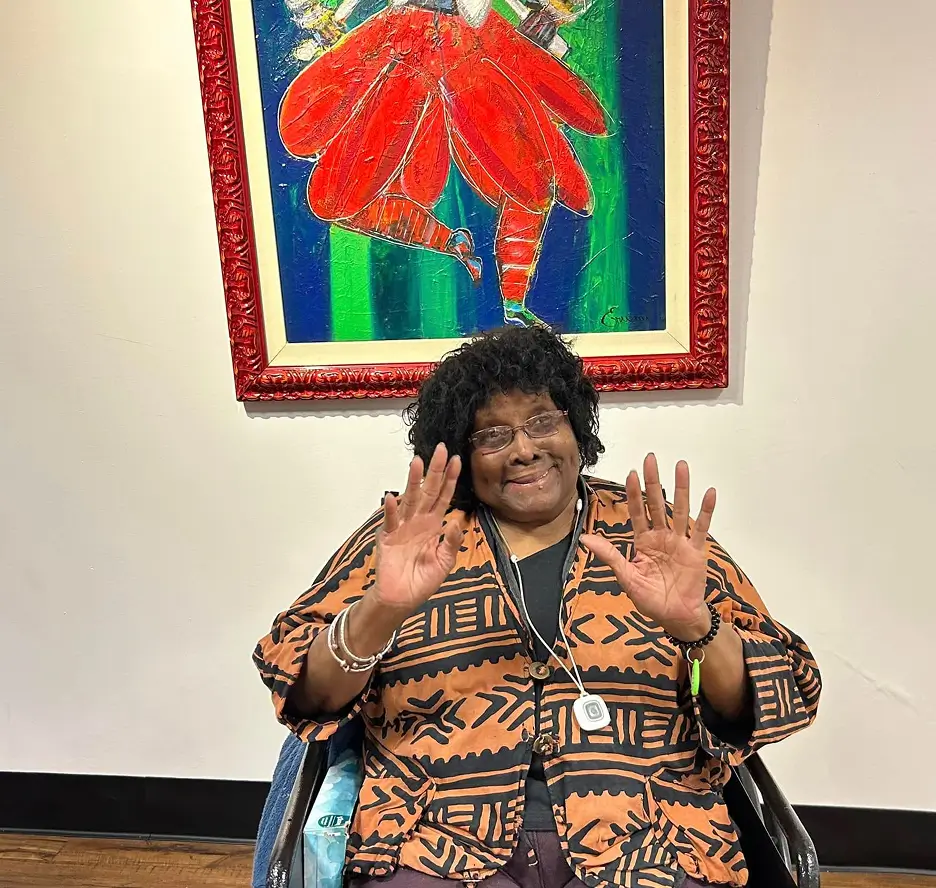
Not necessarily. Many caregivers and families work with healthcare professionals to slow the progression of memory loss and, therefore, stave off forgetfulness. Also, people with mild cognitive impairment who are in early- or mid-stage dementia may not necessarily forget family members.
Of all the different stages of dementia, people with Alzheimer’s disease and dementia tend to forget family members in late-stage dementia, not necessarily in the early stages of dementia.
Maintaining connections with loved ones and engaging in healthy cognitive activities that stimulate the brain are key to slowing the progression of dementia.
But if forgetfulness occurs, it usually occurs in stage seven or six of dementia. Let’s take a look at each in the next sections.
About stage 7 of dementia
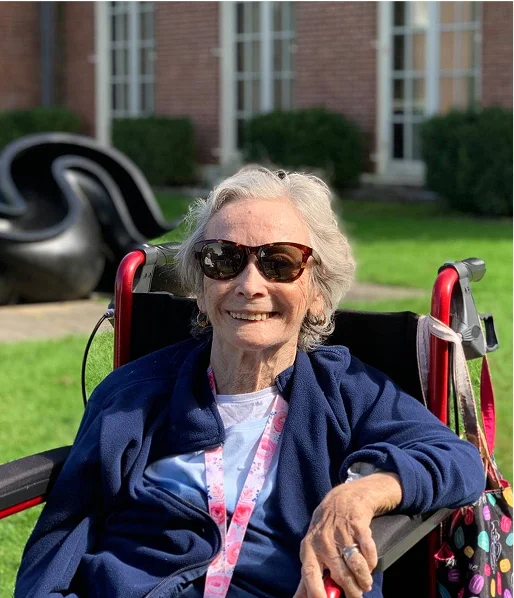
In stage seven of dementia, communicating with people with dementia will be tough. They will likely not be able to recognize you and may struggle to express themselves, understand others, or healthfully express emotions.
Individuals who are in stage seven of dementia often need:
- 24/7 caregiving for personal care, ambulation, and meal preparation
- Nursing care, medication management, and pain relief
- Help with bathing, dressing, continence, and more
- Emotional support to manage a cascade of different emotions
Most communication will be through non-verbal gestures and cues, so if you’re a family member of a person living with dementia, expect communication to be inconsistent in stage seven.
About stage 6 of dementia
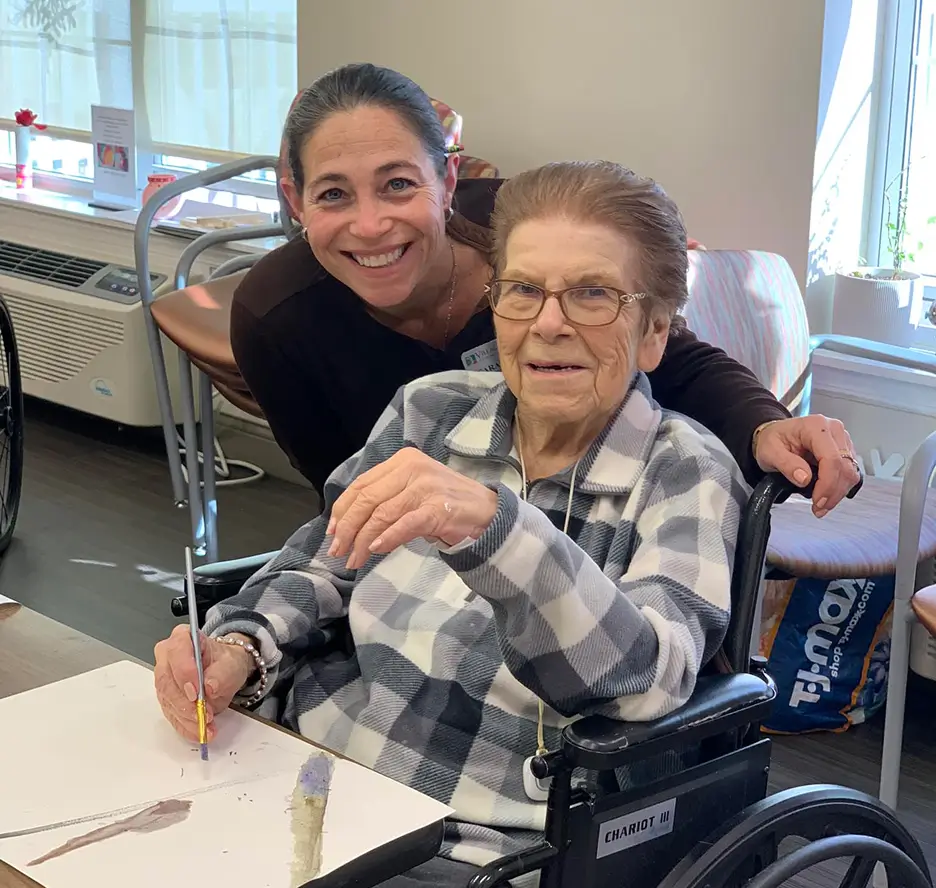
As we look at the signs and symptoms of dementia, stage six is also the lower threshold of where you might notice a person with dementia not being able to recognize family members.
Stage six of dementia is similar to stage seven, but people in stage six might not be completely dependent upon a caregiver. Memory problems definitely occur, but the person isn’t in the final stage of dementia, the stage where individuals lose the ability to care for themselves without complete support from a caregiver.
Key strategies to help families with their loved one with dementia
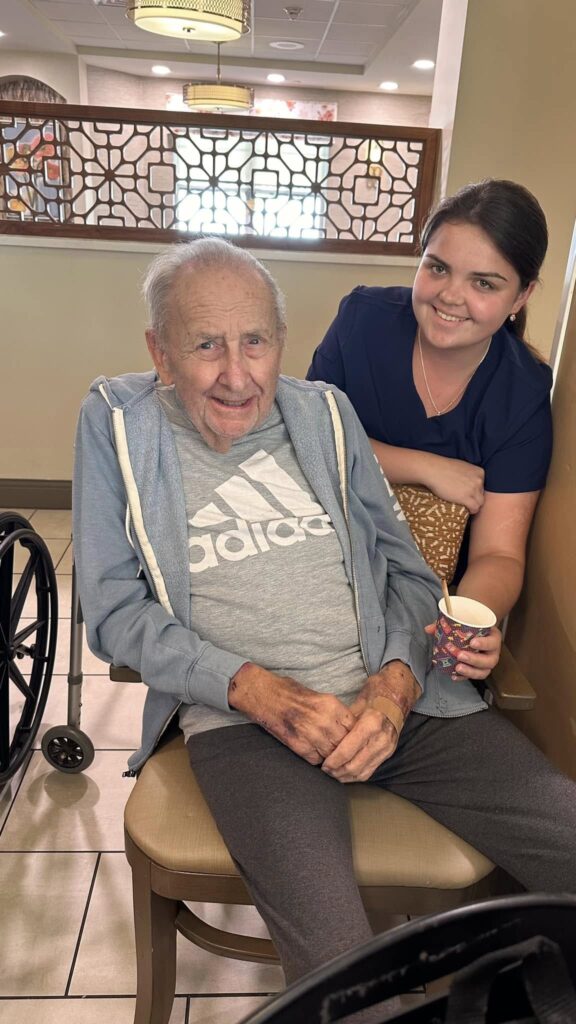
We understand that watching the deterioration of mental capacities is heart-wrenching. Know that there are a few key strategies you can use to help a person with dementia live to their fullest throughout their journey with dementia.
- Use photographs and cherished belongings: Photographs that hold meaning may help aid in the recognition of different people. Cherished belongings may also help trigger memories, provide context, and bring a sense of familiarity to the person. Make sure to include a host of different meaningful photographs and objects, keep them in a visible place, and change them often to help the person with dementia feel a measure of comfort.
- Start with a predictable routine, and repeat it: Routine, repeatable activities and actions help individuals with dementia to perform tasks without much thought. Establishing daily movement, visual aids for recognition, and adapting conventional sensory activities can help those with both early-stage dementia and moderately severe dementia.
The trick is to be kind, compassionate, and patient with both yourself and your loved one. Avoid being confrontational and combative, and do your best to keep the focus of the activities light-hearted and enjoyable.
Did you know?
Did you know that art is a wonderful tool for engaging the senses of sight and touch? Our memory care residents put on an exhibition, and we couldn’t have been more proud of what they accomplished.
Curious to see what our memory care residents can do? Check out all the photos from our Facebook page for more details.
Families: you don’t have to do dementia alone
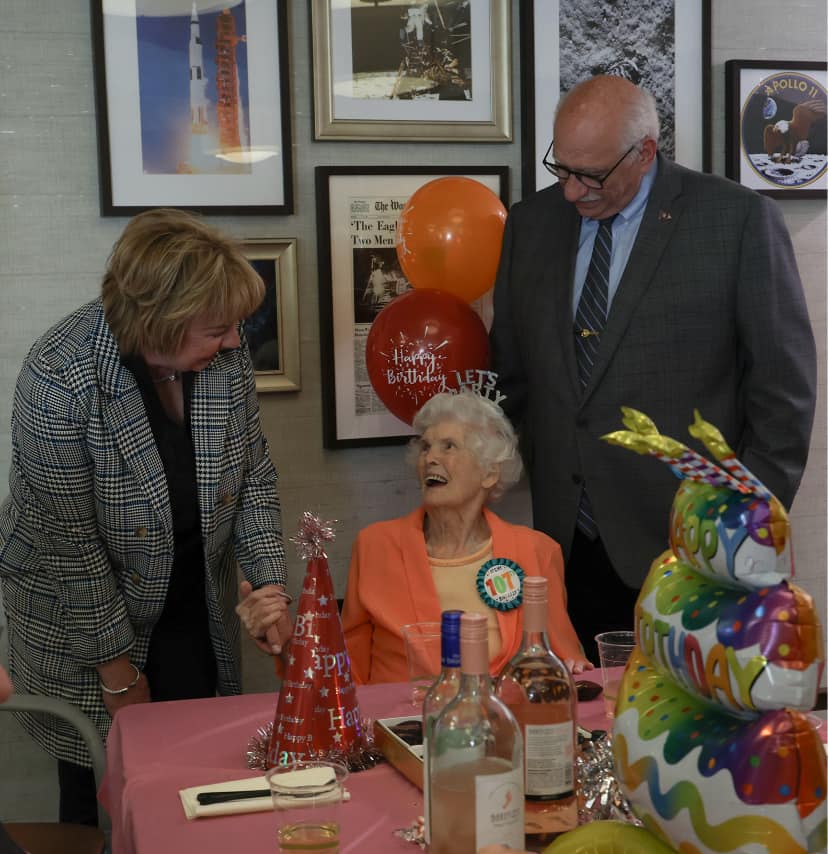
If there’s one other lesson to take away from the stages of dementia, it’s that you don’t have to go at it alone.
You always have the support network of friends, families, and community organizations. At Village Green, our caregivers even teach local community college classes about understanding the stages of dementia in addition to other caregiving responsibilities.
So, if you’re looking for a place to call home for you or a loved one — or if you’re looking for support in caring for a loved one with dementia — we’d be happy to talk!
Our caregivers come to our facility with more than 20 years of dedicated experience supporting seniors with moderately severe Alzheimer’s disease and all types of dementia. For more information about our offerings, our memory care neighborhood, and our staff, don’t hesitate to contact us today.
Welcome to Village Green: Village-Wide Memory Care Support in Levittown, NY

